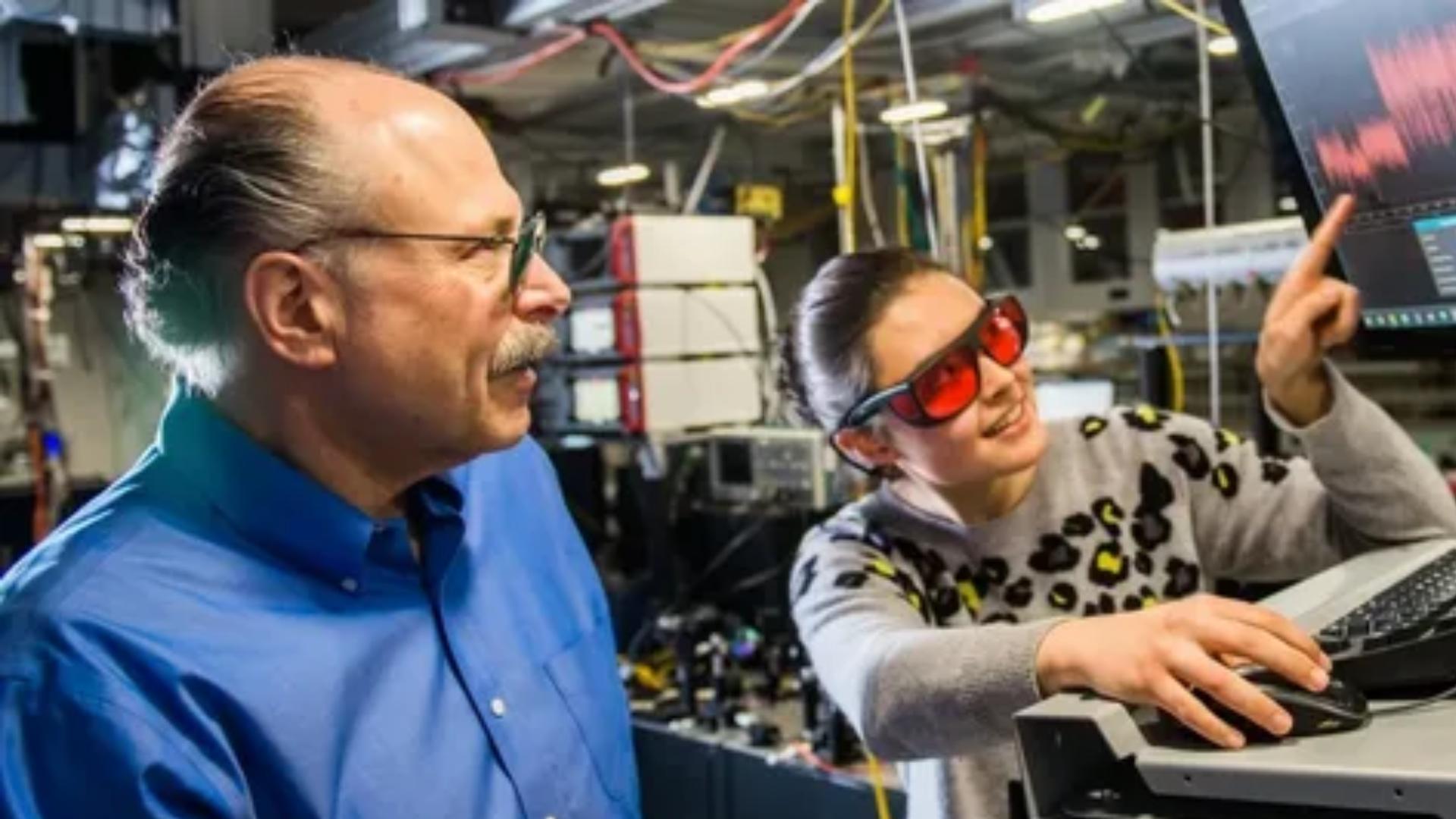Quantum computing is not just a buzzword for tech enthusiasts or a futuristic concept we see in sci-fi movies—it’s very real, and it’s about to shake up technology in ways we can barely imagine. Imagine a computer that doesn’t just count zeros and ones like the computers we use today but instead uses the quantum states of particles, potentially solving problems we can’t even begin to tackle with current technology. Sounds a bit like wizardry, right? It’s actually happening, and here’s all the information you need to understand it.
In this article, we’ll break down quantum computing in simple terms, explore its potential, and have a bit of fun along the way. You might even find yourself at the forefront of your next technological conversation!
What is quantum computing?
Before we dive into how quantum computing will revolutionize technology, let’s first get a handle on what it is.
At its core, quantum computing is about harnessing the strange and wonderful principles of quantum mechanics to process information in a way that classical computers cannot. Here’s the key idea:
- Classical computers, the ones we use every day, process information in binary—zeros and ones, like a light switch that can either be on or off.
- Quantum computers, on the other hand, use quantum bits, or qubits. A qubit has the ability to exist in multiple states simultaneously, akin to a light switch that can simultaneously turn on and off without causing any electrical fires. This ability is called superposition.
To make things even more confusing, quantum computers can use entanglement, where qubits become linked so that the state of one can instantly affect the state of another, regardless of distance. It’s akin to possessing an advanced walkie-talkie that enables instantaneous communication between two individuals, regardless of their respective locations on Earth and Mars.
Why Does Quantum Computing Matter?
You may be thinking, “Okay, that’s cool, but why should I care about quantum computing?” Well, buckle up. Quantum computing has the potential to revolutionize multiple industries, from healthcare to cryptography to artificial intelligence. It’s like upgrading from a tricycle to a supersonic jet—everything changes. Let’s look at the potential impacts.
1. Breakthroughs in Artificial Intelligence (AI)
We’re already seeing AI get pretty smart, but there are limits to what our classical computers can handle. Quantum computing could kick down those walls and let AI soar to new heights. Here’s why:
Speeding up machine learning.
Machine learning algorithms are fantastic, but they need massive amounts of data to train on, and that takes a lot of computing power. Quantum computers can analyze data exponentially faster, allowing AI models to learn and adapt at a speed that we just can’t replicate with today’s hardware.
Enhanced problem-solving capabilities
Some AI challenges, like understanding complex patterns or simulating human thought processes, require computation on an unimaginable scale. Quantum computers could potentially offer solutions to these problems much quicker than traditional systems.
Example:
output:
In the future, a quantum-powered AI might be able to predict the weather with 100% accuracy—maybe even predicting when it’s going to rain on your vacation. (A dream come true for anyone with an umbrella phobia.)
2. Revolutionizing Healthcare
Healthcare is another industry that stands to gain immensely from quantum computing. With its ability to analyze vast amounts of data, quantum computers could radically improve everything from diagnosis to drug development.
Precision Medicine
Currently, doctors rely on a one-size-fits-all approach when prescribing treatment. But quantum computers could model individual patients’ genetic makeup and health data at a level of detail we can only dream of today, enabling personalized treatment plans with higher success rates.
Drug Discovery
The process of discovering new drugs is lengthy and expensive. Quantum computers could simulate molecular interactions more accurately, reducing the time and cost of developing new medications. We could see breakthroughs in cancer treatment, vaccines, and more.
Example:
output:
Imagine a future where a quantum computer could simulate the entire process of how a drug interacts with every protein in the human body in a fraction of the time it would take today. Your doctor might even offer you a personalized medicine prescription based on your unique genetic makeup. How cool (and futuristic) is that?
3. Cryptography and Cybersecurity: Goodbye to Passwords?
Right now, much of our online security relies on encryption methods that would take classical computers thousands of years to crack. Quantum computers, however, can perform these tasks in a fraction of the time.
Quantum Encryption
One of the biggest concerns about quantum computing is that it might render current encryption methods useless. However, quantum cryptography can offer a solution by creating encryption that’s virtually impossible to hack. This type of encryption uses quantum mechanics to secure data in ways that classical systems cannot.
Example:
output:
Your online banking might be secured with a quantum encryption system that’s so strong, not even the most advanced quantum computer can crack it. We might even see the end of password fatigue, as quantum cryptography could offer more secure ways of logging into systems (hello, biometric security!).
4. Accelerating Scientific Research
Quantum computing has the potential to accelerate research across all fields of science by solving problems that are far too complex for classical computers.
Simulating Complex Systems
Quantum computers can simulate chemical reactions and molecular interactions that are too intricate for traditional systems. This could lead to advances in physics, chemistry, and materials science, potentially discovering new materials that are stronger, lighter, or more efficient.
Climate Change Modeling
We could use quantum computers to simulate climate systems more accurately, leading to better predictions and potentially better solutions for climate change. By processing vast amounts of environmental data, quantum computers could help scientists understand and tackle the challenges posed by global warming.
Example:
output:
Think of quantum computing as a high-powered telescope for the universe of scientific discovery. It can peer deeper into problems, offering us better ways to solve them, from curing diseases to developing new energy sources.
5. Transforming the World of Finance
The financial industry is already ripe for disruption, and quantum computing is ready to join the party.
Risk Analysis and Portfolio Management
Quantum computers could revolutionize financial modeling by allowing banks and investors to simulate the behavior of markets in ways that were previously unimaginable. This could lead to better risk analysis and portfolio management strategies, allowing for smarter investment decisions.
Fraud Detection
Quantum computing could also play a key role in fraud detection by analyzing transaction patterns much more efficiently, spotting anomalies that would otherwise go unnoticed by classical systems.
Example:
output:
In the future, a quantum-powered financial system could be so advanced that it might predict market crashes before they happen—making you the best-informed investor in the world. (You might even want to start looking into quantum trading strategies for your next big stock pick!)
6. Quantum Computing in Space Exploration
As if all the other applications weren’t enough, quantum computing is set to play a major role in the final frontier—space exploration.
Navigating the Cosmos
Quantum computers could potentially help scientists better understand space by simulating the complex systems involved in the formation of galaxies, the behavior of black holes, and the interactions of dark matter. Quantum computers could help process vast amounts of data from space telescopes and space missions far more efficiently than current technology allows.
Example:
output:
In the not-so-distant future, a quantum-powered space mission might have the ability to process data from Mars exploration rovers in real time, instantly identifying potential new sites for exploration. It might even help find planets in distant galaxies that have conditions similar to Earth.
Conclusion: The Quantum Leap Into the Future
Quantum computing is not just a science fiction fantasy anymore—it’s a real and growing field that promises to revolutionize almost every sector of technology. Whether it’s solving complex problems in healthcare, powering smarter AI, or securing our online world, quantum computing is the next big thing that could change the way we live, work, and interact with the digital world.
We’re still in the early days, but the potential is immense. So, as quantum computers begin to take shape, be ready for a future where the impossible becomes possible. And who knows—maybe one day, you’ll be chatting with a quantum-powered assistant while riding a hoverboard to your quantum doctor appointment. It’s not so far-fetched after all!











Leave a Reply